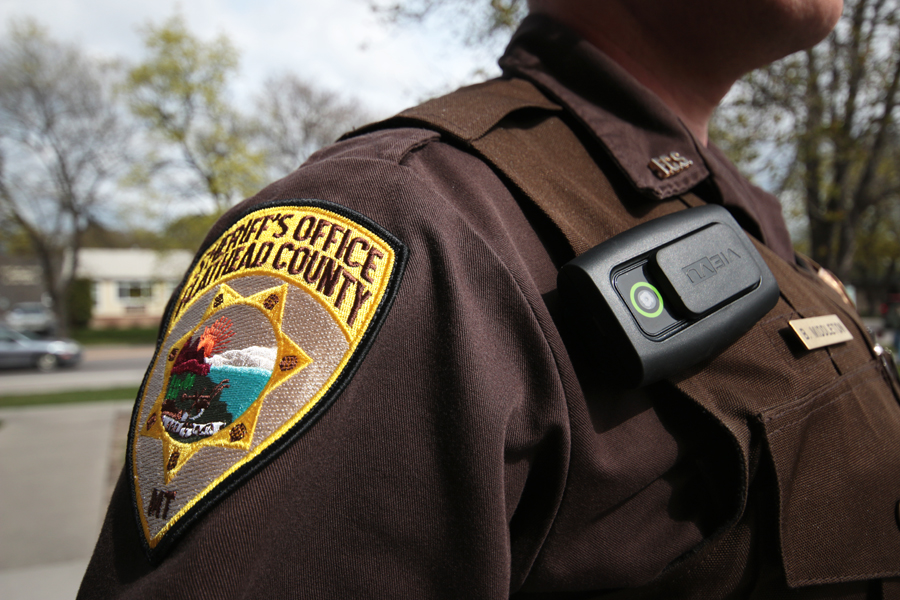The Kalispell Police Department will begin testing body cameras in early February, according to Chief Roger Nasset.
The deployment of 10 new body cameras in Kalispell comes as the Montana Legislature looks at creating a uniform set of standards for police departments to follow. Although there are recommended guidelines from the Montana Department of Justice, there are no official state statutes.
While some departments have decided to follow the recommended standards, others are waiting to see what the Legislature does during the current session.
Body-worn video cameras have gained widespread public support in recent years following a series of high-profile police shootings across the country. Flathead County Sheriff’s deputies have used them since 2015. The Columbia Falls Police Department also did until last November when newly minted Chief Clint Peters decided to stop having officers wear them until the department develops a standard policy. Peters said his department is currently crafting a policy based on suggestions from POST. The Whitefish Police Department does not use body cameras, and Chief Bill Dial said it’s waiting to see what happens in Helena this session.
“We know it’s a good tool,” Dial said. “Right now, it’s a budget issue — we just don’t have the money for that type of investment.”
Last August, the Kalispell City Council decided to spend $30,000 to purchase 10 body-worn cameras and a computer system to store footage. Since then, Chief Nasset has developed a policy for the cameras’ use during the test period. Nasset said officers would only be required to activate the cameras during “enforcement interactions” and that they would be able to turn them off if there were privacy concerns, although they would have to note why they turned the device off in subsequent police reports.
Nasset said he planned on having at least one camera in use during every shift and that the cameras would be deployed sometime during the first half of February. He did not know how long the trial period would last.
Daniel Zolnikov, a Republican House member from Billings, said he plans to introduce legislation in the coming months that would require the state to draft official standards for the use of body cameras. He said the law would take into consideration numerous factors, including protecting people’s privacy and determining how long footage should be preserved.
“I want to have a statewide standard so that everyone is on the same page,” he said. “There are a lot of angles to look at this.”
